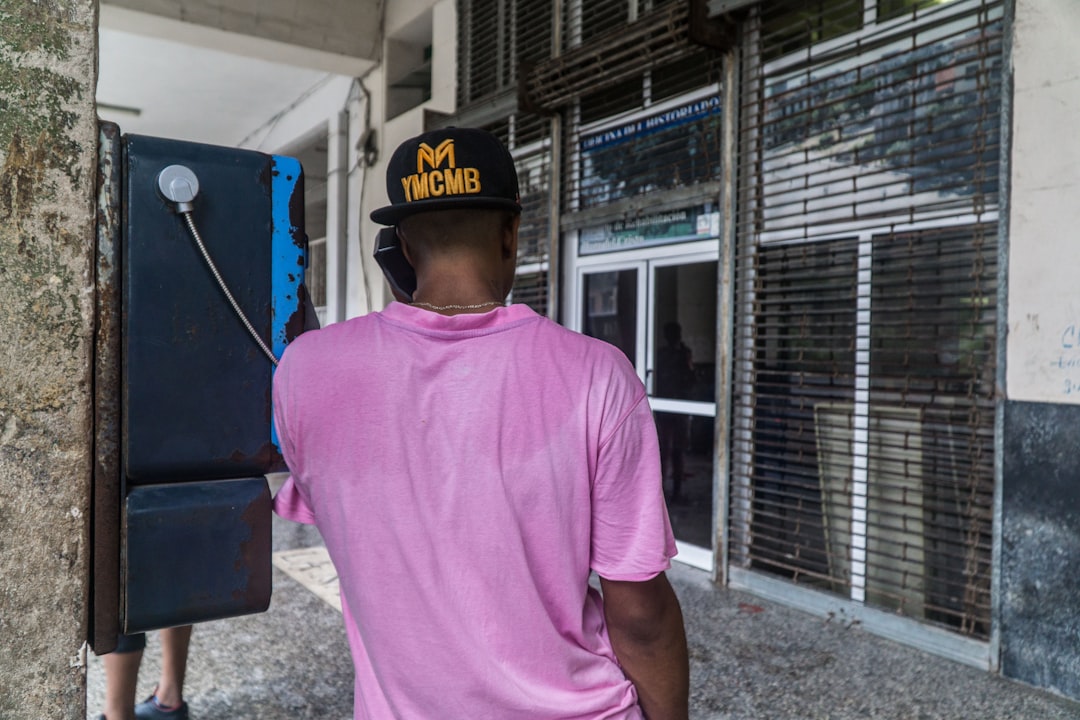The political landscape in South Carolina is marked by an increasing trend of automated phone calls (robocalls) targeting voters, with campaigns leveraging this technology despite lax regulations. While some voters find it convenient, others perceive these calls as intrusive. The state's Telemarketing and Consumer Fraud Act (TCFA) allows robocalls for political purposes, leading to the growth of specialized robocall law firms navigating complex compliance issues. This influx has altered voter behavior, with some becoming more engaged while others feel disenchanted. Effective management involves understanding state laws, using call-blocking apps, and reporting suspicious calls. Stricter regulations are proposed to curb negative impacts, focusing on do-not-call lists, clear message identification, and time restrictions.
In today’s digital age, robocalls have emerged as a powerful tool in political campaigns, particularly at the local election level. This article explores the growing presence of automated calls in South Carolina politics and delves into their impact on voter behavior and engagement. From understanding the legal landscape surrounding robocall regulations to implementing effective strategies for voters, we analyze the current state of affairs and predict future implications. With insights from a leading robocall law firm in South Carolina, this comprehensive guide aims to shed light on how these calls shape local elections and what steps residents can take to navigate them wisely.
Understanding Robocalls and Their Growing Presence in South Carolina Politics

In recent years, the political landscape in South Carolina has seen a significant rise in automated phone calls, or robocalls, targeting local voters. This technology allows political campaigns to reach a vast number of constituents efficiently, but its impact on elections, especially at the local level, is sparking debates and concerns. Robocalls have become a common tool for political engagement, with automated messages delivering everything from campaign promises to reminders about voting dates.
South Carolina’s lax regulations surrounding robocalls compared to other states mean that many campaigns leverage this technology extensively. While some voters appreciate the convenience of receiving information via phone, others find it intrusive and are left questioning the authenticity of the calls, particularly when they receive multiple such calls daily. With a growing number of robocall law firms operating in South Carolina, ensuring compliance with election laws has become more complex, adding another layer to the already intricate process of local elections.
The Legal Landscape: Exploring the State's Approach to Regulating Robocalls

In South Carolina, the legal landscape surrounding robocalls has evolved to address the increasing prevalence of automated phone calls in local elections. The state’s approach to regulating robocalls is multifaceted, with a focus on protecting voters from deceptive practices while ensuring free speech. The Telemarketing and Consumer Fraud Act (TCFA) plays a pivotal role, prohibiting unsolicited robocalls without prior consent, except under specific circumstances such as political campaigns or non-profit organizations.
South Carolina has also seen the emergence of various robocall law firms operating within the state, specializing in representing both consumers and businesses in legal disputes related to automated phone calls. These firms leverage their expertise in TCFA compliance, consumer protection, and election laws to navigate the complex regulatory environment. Their work underscores the importance of striking a balance between safeguarding voter integrity and upholding the democratic process through lawful communication methods.
Impact on Local Elections: A Look at Voter Behavior and Engagement

The deluge of robocalls in South Carolina’s local elections has significantly influenced voter behavior and engagement. These automated phone calls, often from robocall law firms, seek to inform or mislead potential voters, leading to a complex web of public perception and political participation. Studies show that while some recipients find these calls helpful, others perceive them as intrusive or misleading, impacting their decision-making process.
Voter turnout data from recent local elections in South Carolina reveals interesting trends. In areas with higher robocall volumes, voter engagement tended to be more polarized. Some residents became more motivated to vote due to the increased contact, while others became disenchanted, leading to a potential underrepresentation of certain demographics. Understanding this dynamic is crucial for election officials and robocall law firms alike in ensuring fair and transparent local elections moving forward.
Strategies for Voters: How to Recognize and Deal with Robocalls Effectively

Voters in South Carolina, like many across the country, have likely experienced the nuisance of robocalls during their political campaigns. With local elections drawing near, it’s crucial for citizens to be equipped with strategies to recognize and manage these automated calls effectively. One key step is to stay informed about state laws governing robocalling practices. Many states, including South Carolina, have implemented regulations to protect consumers from unwanted calls, often allowing residents to register for ‘do not call’ lists or file complaints against violators through a robocall law firm in SC.
To combat the effects of robocalls, voters can take proactive measures. First, verify the source of the call if possible, as many political campaigns use automated systems but do have legitimate ways to connect with constituents. Second, ignore and hang up on calls you don’t recognize or expect. Adding a call-blocking app or using your phone’s built-in blocking features can also help. Lastly, report suspicious or harassing robocalls to local authorities or relevant election officials to ensure compliance with state laws and protect the integrity of South Carolina’s democratic process.
Future Implications: Potential Changes and Their Effect on South Carolina's Political Arena

As the use of robocalls becomes increasingly common in political campaigns, there’s a growing need for a robust regulation framework to mitigate their negative impacts. In South Carolina, a proposed robocall law firm could significantly alter the dynamics of local elections, ensuring more transparent and less intrusive communication strategies. Such legislation might mandate stricter do-not-call lists, require clearer identification of automated messages, and limit the timing of calls to avoid disturbing residents during sensitive times like bedtime or early morning.
These changes could foster a healthier political environment in South Carolina by encouraging campaigns to focus on personal interactions and targeted messaging rather than mass, unsolicited calls. This shift would not only respect citizens’ privacy but also enhance their voting experience by making politics less intrusive and more personalized. Moreover, with accurate tracking of robocall data, voters might gain better insights into campaign activities, fostering a deeper connection between constituents and their representatives.






